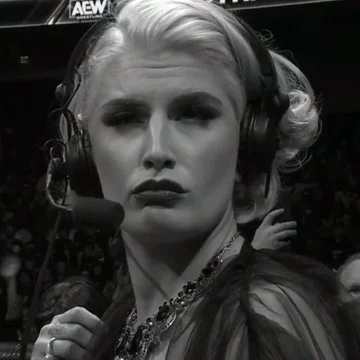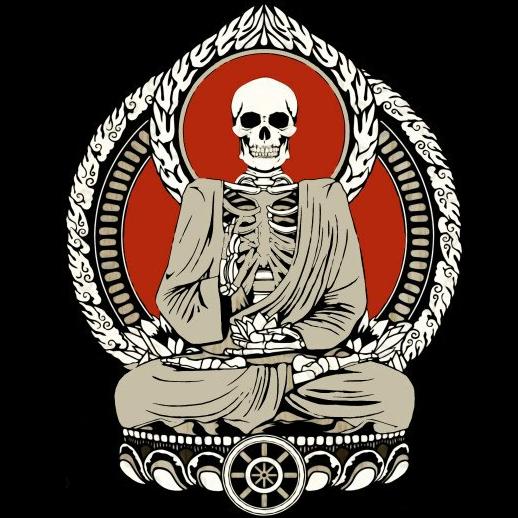lol, I love it.
C.S. Lewis - “I’m going to make the single most catholic fairy tale ever. This thing will be such catholic, woah, watch out, catholic comin’ out of your ears with this fairy tale.”
The Gays: Smiling, rubbing hands together, menacingly

Lewis was an Anglican. Otherwise, yes.
So he failed at Anglic too? Man, that’s not his year.
He failed at Catholic in a sense. He was an atheist who was converted by none other than the devoutly Catholic J.R.R. Tolkien who was then supremely annoyed that Lewis said, “you’re right. God exists. The Anglican flavor.”
I think Tolkien also wasn’t impressed with the unsubtle ASLAN = JESUS. Lewis gives the vibe of the convert that just has to do THE MOST. When you read like the Abolition of Man, you can tell he thinks of himself as a modern St Augustine.
He wasn’t. Tolkien, when asked about the various pseudo-Christ figures in his books (Aragorn, Gandalf, and Frodo specifically), always stated that he hated allegory as a literary device.
Ha! What a loser!
What the hell is going on with these reply dates
It’s the beauty of Tumblr. Old posts resurface, get new comments, gets passed around, fades into obscurity. Rinse and repeat
I’ve always wanted to try to get into the world of tumblr
I signed up in… 2019?, listed science and education as interests and the front page was anti-science trashposting from 2008.
Take your curated experience and be grateful for it.
Time moves differently in Narnia
They were literally in the closet
Is “The Problem of Susan” some incel Narnia fanfiction?
Technically, it’s a short story by Neil Gaiman. Practically, it’s definitely Narnia fanfiction except just legally distinct enough Neil Gaiman didn’t get sued for it.
It’s basically shorthand for, “it’s kinda fucked up that they left Susan Pevensie out of Narnia towards the end just because she liked lipstick and dudes now.”
Especially when Peter was more than happy to sell her off for political gain in A Horse and His Boy, until he found out the slavers weren’t Christian slavers.
only christian slavers for my sister 😤😤
And what for my stepsister? ಠ◡ಠ
A Horse and His Boy was terrible. Gave up halfway through and put off the series for years. Just desert desert desert lazy Muslim analogue desert desert.
Holy shit, I’m glad I’ve never read this drivel.
It’s a good series, broadly speaking. You’ll find a lot of the story beats repeated in subsequent fantasy novels and isekai manga (Terry Brooks, in particular, loves CA Lewis tropes, Terry Pratchett isn’t shy about cribbing from them either, and Brian Jacques’s Redwall plays heavily with Lewis’s style).
The earlier material is definitely better. Lion, Witch, Wardrobe has been reproduced a zillion times for a reason. Prince Caspian is good. The Silver Chair is good. A Horse and his Boy is good, in large part because it heightens the drama of that last chapter of LW&W so well.
And the books are fairly short. Perfect for younger readers. We pick at the bad parts because they spoil what is largely recognized as a genre setting masterpiece. But don’t throw the baby out with the bathwater. There’s a lot of good material and some incredible worldbuilding in these stories.
If I’m going to read juvenile high fantasy from a controversial figure of the fifties, I think I’ll stick to Monteiro Lobato. But thanks for providing nuance and perspective.
It’s the 2020s, every figure older than 3 months ago is controversial.
Big sad.
Hard disagree, it is not a good series. I just finished reading it to my kid. We saw it through in large part through discussing what was weird and why as we went.
The only redeeming factor of the series is Reepicheep.
I feel bad for your kids.
Yeah he went a little mask off in that one specifically, but most kids will miss it I think.
Unless they ask why Aslan mauled the girl who was escaping a forced marriage.
I don’t even want to know…
Gotcha! It’s been a long time since I’ve read the Narnia books so I wasn’t sure if the “lipstick and boys” was from the books or this short story.
IIRC, it wasn’t that “she liked lipstick and dudes” but essentially that her thoughts of Narnia became “oh, that funny game we played as kids”.
It’s not her gender or orientation, it’s that she lost her belief in an effort to become more “adult”. The lipstick and boys bit is more to emphasize this.
Narnia is apparently like Neverland in this regard. You stop believing and the magic is gone.
The faith of children is also a recurring theme in the Bible.
Matthew 18: 2-4, for instance
^2 He called a child, whom he put among them, ^3 and said, ‘Truly I tell you, unless you change and become like children, you will never enter the kingdom of heaven. ^4 Whoever becomes humble like this child is the greatest in the kingdom of heaven.
1 Corinthians: 13 (one of the most-quoted chapters in the Bible, and a beautiful description of love even if you don’t have faith) also compares the difference between childishness and adulthood to the difference between the partial understanding of the universe we have now to true understanding.
13 If I speak in the tongues of mortals and of angels, but do not have love, I am a noisy gong or a clanging cymbal. And if I have prophetic powers, and understand all mysteries and all knowledge, and if I have all faith, so as to remove mountains, but do not have love, I am nothing. If I give away all my possessions, and if I hand over my body so that I may boast,[a] but do not have love, I gain nothing.
Love is patient; love is kind; love is not envious or boastful or arrogant or rude. It does not insist on its own way; it is not irritable or resentful; 6 it does not rejoice in wrongdoing, but rejoices in the truth. It bears all things, believes all things, hopes all things, endures all things.
Love never ends. But as for prophecies, they will come to an end; as for tongues, they will cease; as for knowledge, it will come to an end. For we know only in part, and we prophesy only in part; but when the complete comes, the partial will come to an end. When I was a child, I spoke like a child, I thought like a child, I reasoned like a child; when I became an adult, I put an end to childish ways. For now we see in a mirror, dimly, but then we will see face to face. Now I know only in part; then I will know fully, even as I have been fully known.
And now faith, hope, and love abide, these three; and the greatest of these is love.
In order to see the magic of Narnia, childishness is required, because to see it as an adult is to see beyond the fantastical. In understanding, the ability to see the magic is lost.
Wow, I didn’t realize that C.S. Lewis was riffing off of 1 Corinthians: 13 when he wrote (emphasis mine)
When I was ten, I read fairy tales in secret and would have been ashamed if I had been found doing so. Now that I am fifty, I read them openly. When I became a man I put away childish things, including the fear of childishness and the desire to be very grown up.
If you enjoy dystopian CS Lewis fanfic, check out the book/TV series “The Magicians”.
Bonus: it is very gay
I second this. High quality gay magicians
You had me at gay…which was, admittedly, the end of your comment.
It’s so gay, and the show is gayer. They got to the point where the later seasons each have a musical episode
I couldn’t finish the book, and the TV show was even worse.
i couldn’t even get through the tv show to see the gays
The first two seasons are rough. The last three are better
In fairness, he did state that one of the reasons that he never wrote Susan was that he believed that he couldn’t do her justice, and invited readers to come up with their own theories/stories.
Cis Lewis isn’t welcome in his own fantasy smh my head
Or so you think…
Theres no problem with susan. C.S. Lewis was using narnia as a very christian metaphor, for… come to think of it, lots of things. Included in that metaphor was a Peter Pan esque commentary of childhood. Susan grew up too fast. Thats it. Flawed as it may be, thats the bit. Misogynistic as is seems on reflection, i dont think it was intended that way.
Boys never grow up. If you have full grown man in your life, you already know this.
If you dont, you are missing out. Want to have a child without actually having a child? Make guy friends. Everything will make sense after that.
I’m sure glad we don’t reduce genders to stereotypes around here because that would be very silly.
Included in that metaphor was a Peter Pan esque commentary of childhood. Susan grew up too fast.
One of the reasons The Last Battle soured me on the series was the way in which they applied these increasingly unpleasant purity tests to the accumulated cast of characters.
Boys never grow up. If you have full grown man in your life, you already know this.
One of the messages of “The Problem with Susan” was that pain is the source of maturity. You tend to see this in older people because they’ve experienced more of it.
Grown men who don’t act particularly mature are ones who have led relatively charmed existences. But there are plenty who have a sobriety and seriousness about them. You’ll inevitably find some kind of trauma behind each of these folks.
Also women can be juvenile as well. I know many who have kept their inner child intact.
They can, but the same rules tend to apply. Maturity is a consequence of adversity. People who live frictionless lives tend not to develop it.
Yes, I agree, just wanted it to be known it’s jot a men only thing.
Parenthood also often does a lot to mature you. Not all parents by any means, but many of my friends with kids, and myself, found ourselves much harder to anger once we had kids and our empathic abilities increased substantially.
That all makes sense from an evolutionary perspective
Kids generate a lot of anxiety and no small amount of trauma (particularly for the person carrying the pregnancy to term). Even before the child arrives, there’s also the real possibility of failed pregnancies. I have dozens of friends with kids, but I can count the number of women who have never experienced a miscarriage on one hand. Then there’s the first six months of caring for a newborn, which is intense. There are childhood injuries and illnesses that you feel as fiercely as if they’d happened to you. And there’s the general process of watching a child mature into an adult, and the emotional turbulence of that process.
There’s also the experience of watching an elder loved one - a grandparent or parent or beloved aunt/uncle - grow infirm and die. It weighs on you, both directly as a caregiver and indirectly as a reminder of the mortality of younger loved ones.
Grief has a huge impact on personality.
Becoming a parent is not necessarily about trauma and anxiety - not everyone reacts this way, some people genuinely enjoy becoming parents, including women. What I think is kind of almost universal though, is the new responsibility. That can force you to mature too.
I fully agree on the losing loved ones part.
Becoming a parent is not necessarily about trauma and anxiety
No. There’s a great deal of joy in being a parent, too. But a big part of caring for a child - particularly a toddler or per-adolecent - is having one eye open to the child’s safety, constantly. Kids be doing crazy shit. Its normal and healthy, from a development perspective. But terrifying for a caretaker, whenever the kid behaves recklessly (or in any way the caretaker perceives as reckless).
Its an inherent trade-off. Watching a kid walk for the first time or ride a bike for the first time inevitably means watching them fall or crash. The agony and the ecstasy.
I know very well what you’re talking about and I feel pretty competent to say that not everyone reacts with anxiety or even trauma to a reckless child. Not everyone’s feelings are on the same level in the same situation.
some people genuinely enjoy becoming parents
The only time in my life I ever enjoyed singing, was singing nonsense songs to my little ones
As my little ones graduated from toddlers to kids, I rediscovered my love for Lego
As my little ones graduated from kids to teens, I rediscovered my love for sports. I’ve never gotten so excited to watch a game as when my kid is playing
Damn right some of us really enjoy being parents. Damn right being parents can help some of us rediscover some of the joys of childhood. And it’s not just for women
Then there’s the first six months of caring for a newborn, which is intense.
We have 7 month old Twins. Intense is a good word, the last 7 months have been the hardest of my life so far, and I am hitting on 40. That said, it’s far from trauma, as far as I understand the term.
Also, my father and by brother died 10 and 5 years ago, both before they were old aged. I am well aware of the concept of moratility, even of my wife’s and children’s mortality. It doesn’t weigh on me personally, honestly. It’s just a reality that one has to accept, as there is nothing that can be done about it.
Yeah, I was just thinking about all the young people who were in WW1 and WW2.
TRAUMA has a maturing effect, whether one desires it or not.
When I was young people used to tell me “You’re wise beyond your years” Thanks! That’d be the trauma.
This really depends long-term. Not everyone that experiences trauma develops PTSD, but at least speaking for myself, I’ve had a few decades of hopelessness, helplessness, and a lot of general emotional immaturity for my age. Particularly since so much of it occurred when I was a kid and heard the line about being mature…I regress to that childish mindset often in my 30s still. It’s taken a lot of effort to develop the social support I’ve needed in conjunction with therapy and education to even start the process of actively healing rather than just surviving.
You had me in the first half but boys will be boys is a dangerous slippery slope, not an excuse
Men can grow up. It’s just that modern society seldom cares to teach us to be proper men. So instead we often simply remain undeveloped.
okay, this is definitely how I’m going to think of Narnia from now on.
TIL all the Narnia kids except Susan die in a train crash, tf??
It’s all Christian metaphors, because Lewis was a bit of a hack at times and couldn’t comprehend introducing kids to the idea of eternity by having them die at different times and reaching heaven together anyways they all had to die suddenly at the same time.
With that in mind, there aren’t really that many ways to kill seven people suddenly at the same time. If it wasn’t a train derailment it’d have been a plane crash or something.
Which is especially silly since he established that time moves differently in Narnia.
And then they came out of the closet, of course.
I’ve seen Narnia and don’t really understand the meme. what’s is this even about
well there are seven books in the series, and i think only books two through five have been made into films? anyway, in The Voyage of the Dawn Treader only the two younger children return. in The Last Battle however, the eldest son is back but the eldest daughter is not.
neil gaiman wrote a short story about why.
The Magician’s Nephew is counted as book one these days, but that was not the order in which it was written and a few things won’t make as much sense if you read it first, so I’m not sure why they re-ordered it other than they think that chronological order makes more sense overall, something I disagree with. It was originally the penultimate book, before The Last Battle.
So really, one through four were made into films, but BBC TV and Radio both did the whole thing.
They did make Voyage Of The Dawn Treader into a movie but a very long time ago like I want to say the '90s
BBC made one. Probably in the 90s. The mouse (Reepacheep?) was a full sized costume. Compared to the ful CGI newer one.
Man those BBC ones are pretty good actually, they got as far as the Silver Chair I think.
I am so sorry to do this to you but it was 2010.
No this one was earlier than that. Prince Caspian and The Voyage of the Dawn Treader https://g.co/kgs/xnpnDSN
I could be wrong but is it not just because Susan stopped believing in Narnia? Lucy still shows up for The Last Battle.
EDIT: So do Jill and Polly! This seems a little reductive of Susan’s role in the story as an example of lack of faith and how maturing brings you to focus on your surroundings and lose your inner child.
I mean, it was written by a Christian and the first book was published 1950.
The 1949 law was passed in the UK barring marriage under 16, and went into effect 1/1/50.
Knowing Lewis the entire reason for the “Susan problem” was him likely being upset child marriage had been (slightly more) outlawed.
So Susan turned 16 and Lewis made a big deal about a sudden change and now she’s an adult.
Granted, I could very well be wrong.
But it seems like somebody upset about progress, and I wouldn’t be the first to label Lewis as such. But it’s hard for anyone to claim he wasn’t using his writing to shoehorn his opinions in and get kids to agree with him.
It’s not that deep. The whole series is thinly veiled Christianity. By the end, Susan lost her faith. That’s it. She no longer held Narnia in her heart. But it’s an allegory for children so it was couched in awkward old man language. Why Susan and not Peter? Regular old misogyny, Eve-style.
1950 is when the first book was published. Susan being excluded completely didn’t happen until the last book, in 1956. And considering
Tap for spoiler
They all fucking died IRL
Susan being unable to enter
HeavenNarnia because she no longer believed makes sense narratively and thematically.If you want to see this as some sort of commentary on child marriage laws, well… have fun.
A spoiler tag for a book series that ended in 1956 is wild lol
You’re not wrong 😅 But as far as I’m concerned there’s no expiration date on literature. Somewhere, someone is reading the books for the first time. The odds of them also being on Lemmy are astronomically small. But it was enough of an “oh shit” moment IMO that it was worth the half-second it took to hit the spoiler button.
Tap for ramblings of an old man about old children's books
It was also the moment that jolted me out of whatever enjoyment I had been getting out of The Last Battle. Whenever I would do a re-read, things really slowed down for Silver Chair and Horse And His Boy, picked back up wonderfully for Magician’s Nephew, then Last Battle would ham-fist its way through to the end, with Furry Jesus reveling with his most devout disciples. Just eye-rolling stuff.
The Wardrobe movie from a while back was a surprisingly good adaptation, and as the series went on (and then stalled out after Dawn Treader) I was worried about the actors literally aging out of being able to play the roles. Thinking back, it was probably for the best that it ended there.
I exist and I appreciate the spoiler tag :)
…huh. I wonder if this means I should play the lottery, or if my cosmic coincidence currency has already been consumed lol.
I more meant I have not read them and I may want to read them in the future… Please stay away from the lottery no matter what.
He was having an affair with a woman almost 30 years older than himself, and she died in 1951. I would lean more towards him being upset about something between them, than supposed pedophilia.
He was having an affair with a woman almost 30 years older than himself, and she died in 1951
And surely a wealthy Christian man in England 70 years ago would never be hypocritical…
But like I said, maybe it’s a coincidence and not an intended statement. But the books are incredibly preachy and Lewis writes as if his personal beliefs are clearly and obviously the right and only beliefs.
It’s been decades since I’ve read them, but I’m not the only one with that takeaway from his writings.
And while a child being married under 16 immediately sounds like pedophilia to you (as it should) this was back when the law was being passed and lots opposed it. There were people fighting it for decades after even.
And it literally explains why Susan was held to a different standard than Pete:
This section re-enacts section 1 of the Age of Marriage Act 1929 which set the minimum marriage age at 16 with consent of parents or guardians and 21 (since lowered to 18) without that consent. Marriages contracted by persons either of whom is under the age of 16 years are void.[10][11] Before 1929, the common law and canon law applied so that a person who had attained the legal age of puberty could contract a valid marriage. A marriage contracted by persons either of whom was under the legal age of puberty was voidable. The legal age of puberty was 14 for males and 12 for females.
In 1971, Eekelaar wrote that the prohibition now contained in this section “though desirable, is extreme and inflexible.” According to him it could result in “genuine hardship”, such as where it is discovered, after years of apparent marriage, that a mistake was made, at the time of the ceremony, regarding the age of one of the spouses, or where one of the spouses concealed their real age, though, after 1971, some protection was afforded by section 6 of the Law Reform (Miscellaneous Provisions) Act 1970[12] (now repealed and replaced by the Inheritance (Provision for Family and Dependants) Act 1975).
https://en.m.wikipedia.org/wiki/Marriage_Act_1949
So while you think I’m making an assumption in saying his opposition to this law was likely and may have influenced what he wrote about…
You’ve also twisted that into me labeling him a pedo that wants to marry a child younger than 16 and implied everyone agreed that this law was a good thing. One thing you’ve just invented and another that’s easily disproven
I gave a fact; that he was having an affair with an older woman who died shortly after the book was published. You are the one who claims that he was upset about child marriage. When we talk about people making things up, let’s remember who is basing their posts in facts, and who is basing them in unrelated conjecture.
Here’s my “theory”. He was having an affair with a woman, and like all hypocrites, he wanted to feel as though it was something that others were guilty of, too. So, he had a woman who, at the end of her life, is having regrets about their relationship. Lewis is upset that she doesn’t like their relationship anymore, and he vilifies her and in his writing says that she’s not getting into heaven because she’s an adultress.
Do I have any proof? No. Do you? No, also. However, this is based on real events that happened to him, and your idea is just “well, maybe he was into child marriage.”
Lewis is well-known for having an Oedipus complex. There is nothing to indicate he was attracted to or abused children.
Great.
Why do you think I said he was?
Genuinely asking because for some reason when I said he was likely against the law like most religious people were, that meant he personally wanted a bride under 16
And I legitimately would like to know why, even after I explicitly said this:
You’ve also twisted that into me labeling him a pedo that wants to marry a child younger than 16 and implied everyone agreed that this law was a good thing. One thing you’ve just invented and another that’s easily disproven
What about that did you read and think I meant Lewis wanted to marry a child?
Because all you’re doing is wildly speculating about a man without a shred of evidence.
“Everyone older than me is irredeemably evil” is such a Zoomer take
Dancing with the fauns.
The whole first part - thats how you realise what canon really was telling you. Sometimes you gotta process it slowly.











